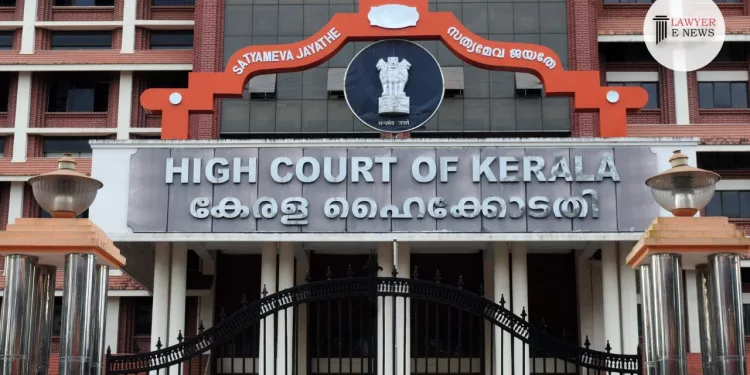Licensees Not Entitled to Co-Ownership Protections, Rules Kerala High Court in Property Dispute: Kerala High Court

In a significant ruling, the High Court of Kerala at Ernakulam dismissed a second appeal challenging the eviction of licensees from a co-owned dwelling house. The judgment, delivered by Justice C. Pratheep Kumar, affirmed the concurrent findings of the trial court and the first appellate court. The court concluded that the defendants were licensees rather than co-owners and thus were not entitled to protection under the Transfer of Property Act.
Court Observations and Views:
Credibility of Defendants’ Claims:
The court examined the defendants’ claim of adverse possession and property exchange. The defendants argued that they were co-owners by virtue of an alleged exchange of properties with the original co-owner, Devaraja Gowder. However, both the trial court and the first appellate court found these claims unsubstantiated. “The defendants could not prove the exchange of properties as claimed,” noted Justice Kumar.
Licensee Status:
Justice Kumar underscored that the defendants were residing in the dwelling house as licensees under Devaraja Gowder. “The status of the defendants is only as licensees and nothing more than that,” he stated, rejecting the contention that they were co-owners entitled to joint possession of the property.
Legal Reasoning:
Application of Section 44 of the Transfer of Property Act:
The court emphasized that Section 44 of the Transfer of Property Act, which deals with the rights of co-owners and transferees, did not apply to the defendants since they were not co-owners. “The protection under the second paragraph of Section 44 is available only to the other co-owner, Subbayya Gowder,” explained Justice Kumar.
Validity of Mandatory Injunction:
The court upheld the mandatory injunction granted by the lower courts, which directed the defendants to vacate the property. The judgment distinguished this case from typical trespasser scenarios, noting the prompt legal action taken by the plaintiffs following the termination of the license. “There is absolutely no delay in filing the suit for mandatory injunction, after the termination of the license,” Justice Kumar observed.
Justice Kumar remarked, “Since the 1st defendant along with the 2nd defendant are residing in the dwelling-house in the plaint schedule property as licensees, on termination of the license, they are bound to vacate the plaint schedule property.”
Decision: The High Court’s decision reaffirms the legal framework governing co-ownership and licensee rights in property disputes. By dismissing the second appeal, the court highlighted the importance of distinguishing between licensees and co-owners, reinforcing that licensees cannot claim rights over the property beyond the scope of their permission. This judgment is expected to guide future cases involving similar disputes, emphasizing the necessity of clear evidence in claims of adverse possession and co-ownership.
Date of Decision: 24 May 2024
Sivalingappa Gowder @ Sivaraj Gowder (Deceased LRs Impleaded) and Others vs. N. A. Anidas





